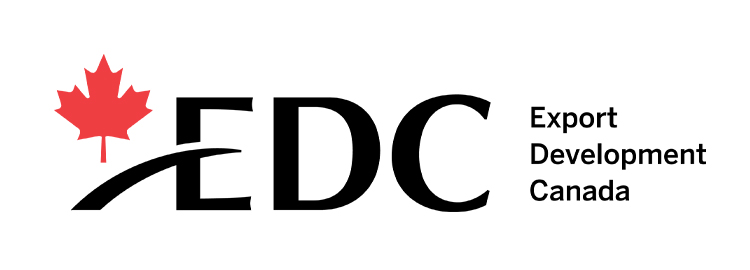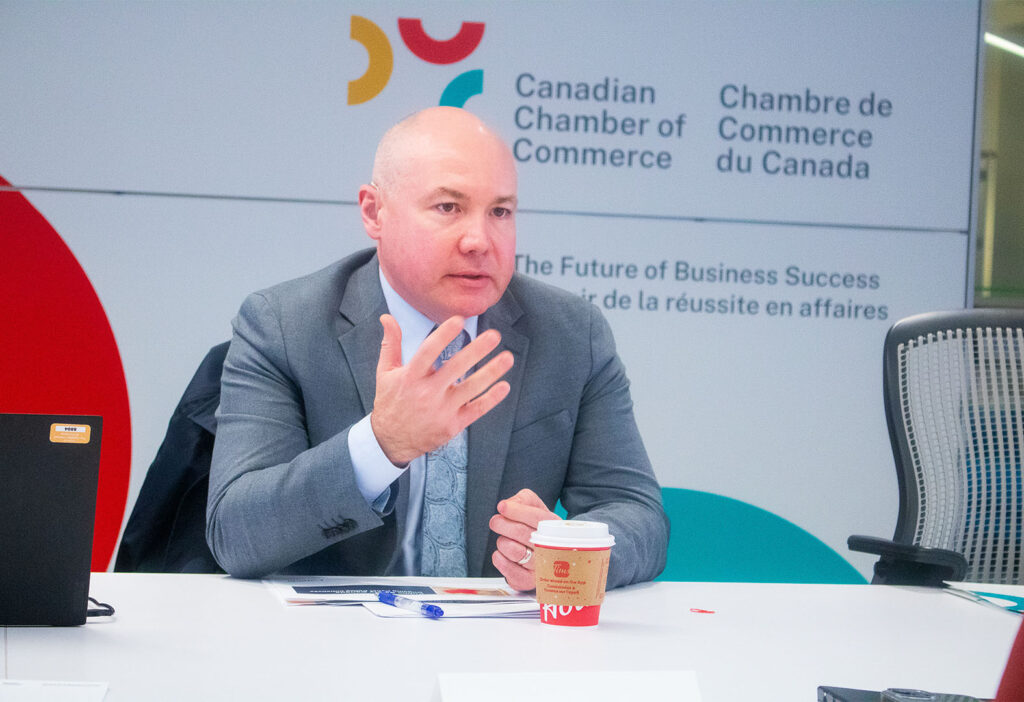Blog /
Disclosing Episodic Disabilities in the Workplace
Disclosing Episodic Disabilities in the Workplace
This blog was provided by Realize Canada.

For many people – and for many employers – the term “episodic disabilities” is a new one. Episodic disabilities are chronic health conditions characterized by fluctuating periods and degrees of illness and wellness. These periods can be unpredictable in duration, types of symptoms and frequency of recurrence. For example, a person who is living with depression, arthritis, diabetes, HIV, or long Covid might be well for several months, only to experience several episodes of illness in a row. Each episode may be different in terms of the symptoms experienced, how long it lasts, and how intense the symptoms are. There are multitudes of episodic disabilities affecting countless people daily. (Realize)
In fact, episodic disabilities are on the rise. On December 1st, 2023, Statistics Canada released findings from the 2022 Canadian Survey on Disability (CSD). The survey found that “27% of Canadians aged 15 years and older, or 8.0 million people, had one or more disabilities that limited them in their daily activities. The rate of disability in Canada has increased by 5 percentage points since 2017.” (Statistics Canada, 2023) There is a complex array of factors driving this increase across the country, including the rising number of people reporting long-term effects of COVID infection, however, the two most significant factors Statistics Canada has identified are, “the aging population and the large increase in mental health-related disabilities among youth and working-age adults.”
It begs the question: how do employers create a safe environment for employee disclosure of episodic disabilities, so to not only glean understanding, but to provide support and accommodation?
This question is the deep dive Realize is making at this year’s edition of their free annual, ever-expanding, two-day virtual event, the 2025 National Summit on Episodic Disabilities and Employment taking place on March 19 and 20th. Hundreds of attendees have already registered, a sign that conversation around episodic disabilities is much needed and wanted. Many business leaders have recognized this significant shift in the workforce but are still trying to figure out what it means. Current workplace practices and processes are often not adequate for these new workplace dynamics.
This is why Disclosure in Dialogue is the theme of the Summit this year. Attendees can expect to be enriched by the latest, leading-edge thinking on episodic disabilities in the workplace. The Summit aims to catalyze workplace change through sharing best practices, and by highlighting important research. It’s an online opportunity for Human Resource professionals, managers, other workplace leaders and employees living with episodic conditions to create links between valuable research and actionable workplace solutions. What attendees learn could support the creation of a more inclusive and accessible work environment for people living with episodic disabilities.
Realize Canada’s National Lead, Episodic Disabilities, Melissa Egan, offers insight on the timeliness of the Summit from her unique perspective. “I get to see in my day-to-day just how many employees feel angst about how their episodic disabilities might affect their jobs, and just how many employers are learning about the increasing number of staff who experience episodic disability. It’s uncharted territory, and our Summit is lighting a way forward for both parties. People want to know best practices; they want to be disability-confident employers. Employees want a safe place in which to disclose, along with support, understanding and accommodation.
“I think that’s why, once again, we are enjoying a record number of participants – over 500 business leaders, HR professionals, researchers and many others have signed up already – even though the Summit is over a month away. Businesses that build flexibility into their HR systems and workplace practices are better able to adapt.”

Summit Details:
Dates: March 19 and 20, 2025
Times: 12:00 pm – 3:30 pm ET (both days)
Cost: FREE
Other Blogs

A Failure of Process and Policy: Canada’s Greenwashing Amendment to the Competition Act in Bill C-59

Policy Matters: Why Energy Security Matters Yesterday, Today and Tomorrow

Friends and Partners: Japan-Canada Chambers Council 8th Meeting Recap Blog
Blog /
A Failure of Process and Policy: Canada’s Greenwashing Amendment to the Competition Act in Bill C-59
A Failure of Process and Policy: Canada’s Greenwashing Amendment to the Competition Act in Bill C-59
A new paper from the McDonald-Laurier Institute, authored by Sonya Savage and Heather Exner-Pirot, in partnership with the Canadian Chamber’s Net-Zero Council.

A new paper from the McDonald-Laurier Institute, authored by Sonya Savage and Heather Exner-Pirot, in partnership with the Canadian Chamber’s Net-Zero Council, goes beyond talking points and headlines to describe the process by which the “greenwashing” amendment to the Competition Act under Bill C-59 became law and the impact it has had since then.
The purpose of the report is to:
- Describe the making of the amendment (74.01(1) (b.2))
- Identify the most ill-conceived features of the greenwashing amendment
- Document the many criticisms of the amendment
- Outline Canada’s approach to greenwashing claims compared to international peers
- Make recommendations for the fixing of the Competition Act

What Is Greenwashing?
First coined in 2013, greenwashing describes tactics used by corporations to mislead the public into thinking they are doing more to protect the environment than they really are.

The Greenwashing Amendment
On April 30, 2024, a late-stage amendment to the Competition Act was introduced and accepted by the House of Commons Standing Committee on Finance. The amendment was passed without consultation with stakeholders or fulsome discussion as in the ordinary course of parliamentary procedure. The change became law when C-59 received Royal Assent on June 20, 2024.
Instead of applying only to products, the amendment applies broadly to anybody making a representation about a business or business activity that relates to the environment. It is not limited to protecting consumers from false advertising in the traditional sense — it covers what a company, or its employees or representatives, can say to investors, financial institutions, stakeholders, business partners and even regulators and governments. It applies to businesses that don’t offer services or products to the public, and includes industry and business associations, as well as advocates.
The new section regulates and impacts almost every sector of the Canadian economy. Under the late-stage amendment, environmental representations do not even have to be false or materially misleading to be actionable. A communication can be true but illegal unless substantiated in accordance with an undefined “internationally recognized methodology.”
The late-stage amendment also has a reverse onus of proof: this means that the person or company making a representation must be able to prove that it is based on an “internationally recognized standard”, not the Competition Bureau or the complainant seeking a review. Thus, there are minimal cost risks to the complainant, and the process is less onerous. It is very likely that this will increase the number of claims brought by environmental groups and others.
Finally, companies found greenwashing in breach of the amendment now face new penalties of up to $10 million for a first offense or 3% of the corporation’s annual worldwide gross revenues, whichever is greater.
Consequences of the Amendment
Fallout from the late-stage amendment was immediate with many oil and gas industry groups and companies taking down information from their websites and social media. However, concerns over the amendment were not limited to the oil and gas industry but were held across multiple sectors, including agriculture and agrifood, chemistry, forestry, mining, construction, manufacturing, the financial sector and especially businesses pursuing low carbon and energy transition projects and technologies.
Following June 2024, the Competition Bureau opened up a consultation, focusing on how to provide guidance and clarification on such things as the “internationally recognized methodology” test. The Bureau received 208 public submissions from oil and gas companies as well as others like the Canadian Paint and Coatings Association, the Canadian Canola Growers Association, the Alberta NDP and Elizabeth May, the leader of the federal Green Party.
Criticisms of the Amendment
Not only was the late-stage amendment unnecessary and duplicative of reporting frameworks already in place by the Canadian government, but it is also at odds with the purpose of the Competition Act itself, which has historically been focused on protection of consumers and ensuring competition among businesses. The amendment moves the Competition Act towards unfamiliar territory. Other legislation and policies are better suited to address legitimate social and environmental objectives.
Unintended Consequences of the Amendment
In the case of the amendment, the unintended consequences are serious, should have been anticipated, and must be addressed:
- Uncertain tests and risk will lead to greenhushing
Because of the vague, undefined “internationally recognized methodology” standard set in the amendment, companies face enormous uncertainty and likely will decline to speak about their environmental performance or climate strategies due to the fear of financial and reputational risk. - Uncertainty for companies setting net-zero targets
The uncertainty surrounding the internationally recognized methodology tests are making it more difficult for businesses to set and communicate goals to reduce emissions or achieve net zero targets. - Duplicate regulation and over-regulation
Viewed in its entirety, the Bill C-59 amendments appear to represent another lever to address climate policy in legislation that was not designed for such purposes. The Competition Act amendments duplicate and even contradict other mandatory climate and ESG disclosure efforts underway.

Canada’s Legislative Approach to Greenwashing
No other jurisdictions around the world have created the level of uncertainty that Canada has with its legislation, nor have they combined uncertain tests like the “internationally recognized methodology” with a reverse onus, expanded private rights of access and massive fines.
Differences between Canadian greenwashing legislation and other jurisdictions:


Recommendations
Many of the ways that Canada can mitigate the uncertainty, risk and other negative impacts resulting from the greenwashing amendment in Bill C-59 have been presented in the 208 submission the Competition Bureau received in its public consultation. However, the most appropriate course of action is to not only repeal 74.01(1) (b.2), the amendment concerning business activities and the undefined international methodology for substantiation, but all of the greenwashing and deceptive marketing amendments passed under Bill C-59.
Alongside existing and developing frameworks, including the Sustainability Accounting Standard Board (SASB), the International Sustainability Standards Board (ISSB), and the Taskforce on Climate-Related Financial Disclosure, and the Global Reporting Initiative (GRI), this report finds Canadians to be sufficiently protected from deceptive marketing practices and greenwashing.
Other Blogs

Disclosing Episodic Disabilities in the Workplace

Policy Matters: Why Energy Security Matters Yesterday, Today and Tomorrow

Friends and Partners: Japan-Canada Chambers Council 8th Meeting Recap Blog
Blog /
Friends and Partners: Japan-Canada Chambers Council 8th Meeting Recap Blog
Friends and Partners: Japan-Canada Chambers Council 8th Meeting Recap Blog
The annual JCCC meeting is an exciting opportunity to shape the future of the long-standing Canada-Japan relationship.

In Ottawa, on February 6, 2025, the Japan-Canada Chambers Council (JCCC) held its 8th annual meeting. Established in 2014 by the Canadian Chamber of Commerce and the Japan Chamber of Commerce and Industry (JCCI), the JCCC is a shared platform to build relationships, exchange knowledge, and advocate for policies to support bilateral trade and investment.
Trade and economic relations between Canada and Japan have been steadily expanding over almost a century of diplomatic and commercial relations. Japan is the world’s fourth-largest national economy and one of Canada’s most important economic and commercial partners. The annual JCCC meeting is an exciting opportunity to shape the future of the long-standing Canada-Japan relationship.
Welcome Remarks
Despite the volatile international context in which the meeting took place, a pervasive optimism for the future of the Japan-Canada relationship energized the space. Ambassador of Canada to Japan Ian McKay, Ambassador of Japan to Canada Kanji Yamanouchi, JCCC Co-Chairs Mr. Tatsuo Yasunaga and Mr. Rick White, as well as many business leaders from Canada and Japan, filled the room.




Panel 1: Securing Critical Supply Chains in an Era of Heightened Geopolitical Risks
Moderator: Motria Savaryn-Roy, Director, Geopolitical Economics, Sun Life
Speakers: Duane Hertzer, President, Optima Manufacturing; Dave Carey, Vice President, Government & Industry Relations, Canadian Canola Growers Association (CCGA); Greg Honig, Chief Commercial Officer, Sherritt International.
Insights from the panel
- Strengthening relationships with traditional trading partners remains essential.
- Regular labour disruptions add to economic instability.
- Free trade principles must be upheld while ensuring regulatory certainty.
- Environmental standards should not be compromised, even as trade policies evolve.
- Although diversification is widely discussed, the sheer size of the U.S. market presents challenges for smaller economies. As a middle power, Canada can expand its influence and grow its competitiveness by working collectively with partners like Japan.
- Canada has not made significant trade infrastructure investments since the 1970s. The political will and long-term foresight to see vital trade and transportation infrastructure expanded and updated have both been lacking. To get things built and ensure streamlined trade in all directions, the focus on infrastructure projects should shift from process-driven approaches to outcome-based strategies.

Keynote Remarks: Enhancing Bilateral Trade and Investment Promotion
Todd Winterhalt, Senior Vice-President, International Markets, Export Development Canada
- There is a significant gap between Canada’s trade with the U.S. and with Japan, but the momentum to close it is there. Japan is actively seeking reliable partners like Canada to support its national, energy, and food security. There is an opportunity to spur strong economic activity by deepening collaboration across Canadian and Japanese industries and sectors.
- Trade agreements provide certainty and certainty in trade is invaluable. Partnerships work best when both sides rely on each other, though uncertainty can still arise even in well-established relationships (i.e., Canada-U.S.).
- Just over half (51%) of Canada’s export value is generated by only 6% of Canadian companies.
- Export market diversification reduces economic vulnerability — companies engaged in multiple markets are less impacted by trade uncertainties.
- Exporting companies tend to perform better overall. Exporters who sell to multiple markets have 20% higher export volumes than those that don’t.
Mio Kawada, Executive Vice President, Japan External Trade Organization (JETRO)
- Canada presents a lucrative market for Japanese companies, with significant opportunities for expansion and growth. Continued collaboration can unlock further economic benefits for both countries.
- Japanese companies in Canada face challenges related to skilled labour shortages and wage increases. Despite these challenges, many Japanese companies are looking to expand their operations in Canada. Specific areas for growth are innovation (particularly AI) and food.
- Key industries such as travel and amusement, and automotive sectors in Japan aim to maintain or expand their presence in Canada.


Panel 2: Cooperation on Energy and Clean Technologies
Moderator: Chris Doornbos, President & CEO, E3 Lithium
Speakers: Takeshi Mitsui, President & CEO, Mitsui & Co. (Canada) Ltd.; Charles-Olivier Tarte, CFO, Nouveau Monde Graphite Inc; Makoto Susaki, President, MHI Low Carbon Solutions Canada.
Insights from the panel
- Energy security and economic resilience present an opportunity to process critical minerals domestically.
- While discussions around energy and supply chains are easy, achieving tangible results remains difficult. Diversifying supply chains is essential but cannot be done overnight — yet action must start now.
- Despite the complexities, no energy-rich nation should struggle economically if resources are properly managed.
- Chinese dominance in the critical minerals sector poses a significant challenge. Competing against state-backed enterprises like those in China requires a strategic and competitive business model. For national security, Canada must work to diversify supply sources outside of China and mitigate risks associated with over-reliance.

Japan-Canada Chambers Council Joint Statement
After the insightful presentations and panels, the JCCC Chairs signed the Joint Statement, reaffirming their commitment to maintaining and growing this vibrant trade relationship. The Joint Statement is shared with the Government of Canada on behalf of Canada-Japan industry.


The Future of the Japan-Canada Relationship
The regular convening of our two nations’ business leaders at forums like this one, and the upcoming B7 Summit in May, has never been more important.
As global trade grows more fragmented and the international context more volatile, it is essential Canada deepens established relationships with countries, like Japan, that share similar values — dedication to a free market economy, commitment to the rule of law, and a modern industrialized economy.
The Canadian Chamber of Commerce and the Japan Chamber of Commerce and Industry look forward to continued collaboration with our members, as well as the Canadian and Japanese governments, to drive forward progress on exploring new measures for facilitating bilateral trade while also strengthening existing systems. While there is a lot of work still to be done, there is also immense opportunity — growing the trade between Canada and Japan can lead to a more sustainable and prosperous future, not just for our two countries, but for the world.

Thank You to Our Sponsors


Other Blogs

Disclosing Episodic Disabilities in the Workplace

A Failure of Process and Policy: Canada’s Greenwashing Amendment to the Competition Act in Bill C-59

Policy Matters: Why Energy Security Matters Yesterday, Today and Tomorrow
Blog /
Tariffs Are Threatening Canadian Jobs and Innovation—Businesses Speak Out
Tariffs Are Threatening Canadian Jobs and Innovation—Businesses Speak Out
Now more than ever, Canada needs bold leadership to defend its businesses and workers. The government must be an unapologetic champion for free and fair trade.

Across Canada, businesses are feeling the squeeze. Tariffs aren’t just disrupting trade — they’re driving up costs, stalling innovation, and putting jobs and long-term economic growth at risk. From manufacturing to agriculture, no sector is immune.
Now more than ever, Canada needs bold leadership to defend its businesses and workers. The government must be an unapologetic champion for free and fair trade.

Your experience can shape the national conversation and push decision-makers on both sides of the border to act.

Together, we can ensure Canadian businesses stay competitive and strong. Let’s go all in.
Chambers Across Canada Warn: Tariffs Put Our Businesses and Workers at Risk
Protecting Canada’s Economy from Harmful Trade Barriers: Manufacturing and Agriculture Speak Out

Manufacturing


Agriculture


Quebec
Other Blogs

Disclosing Episodic Disabilities in the Workplace

A Failure of Process and Policy: Canada’s Greenwashing Amendment to the Competition Act in Bill C-59

Policy Matters: Why Energy Security Matters Yesterday, Today and Tomorrow
Blog /
Policy Matters: Why the B7 Is Important, Especially Now
Policy Matters: Why the B7 Is Important, Especially Now
In the lead up to the G7, the Canadian Chamber of Commerce, as the B7 2025 President, will host the B7 Summit in May.


2025 is a big year for Canada. The world’s eyes will be on us, especially in June when the G7 assembles in Kananaskis, Alberta.
In the lead up to the G7, the Canadian Chamber of Commerce, as the B7 2025 President, will host the B7 Summit in May. Hosting a global event like the B7 Summit comes with high expectations. It’s a challenge we’re excited to meet.

What Is the B7?
The B7 is the official voice of the international business community within the G7 framework, an informal intergovernmental organization made up of the world’s seven largest advanced economies — the United States, the United Kingdom, Canada, Japan, Italy, France, Germany and the EU (although the EU isn’t part of the annual presidency rotation). The B7 is one of the arms-length, civil society-led engagement groups that provide recommendations to the G7.

What Is the Purpose of the B7 Summit?
Ensuring that we build and maintain strategic relationships with international partners is critical to Canada’s long-term economic success. While governments may engage in deal making and negotiation, it’s businesses that engage in trade. As the 2025 B7 President, Canada has a prime opportunity to influence international policies and empower Canadian businesses to successfully navigate an uncertain future.
The B7 Summit is an unparalleled platform for addressing critical global challenges, fostering collaboration among the gathered countries’ representatives, and advancing tangible policy recommendations that drive economic growth and stability for all B7 members.
The Summit will conclude with the presentation of the official B7 Communiqué to the Government of Canada. The communiqué is a policy document outlining actionable proposals for critical economic sectors that the G7 can use when developing its own. The B7 Communiqué ensures that a strong business voice is heard as global economic priorities are being set.

The Canadian Chamber’s Role as President
As host, it’s our responsibility to lead discussions on various themes and push the priorities of Canadian businesses to the forefront of the global agenda. We also:
- Define priorities for the year ahead.
- Host and organize the annual B7 Summit — a two-day program.
- Organize ministerial-level meetings — The Canadian Chamber will host a B7 side program around select business-relevant G7 ministerials.

Why Global Forums like the G7/B7 Are More Important than Ever
With international economies connected through complex supply chains, no nation is an island anymore. Yet, as global trade grows increasingly fragmented, forums like the G7 and G20 — along with their engagement groups — grow increasingly significant in bridging gaps and facilitating productive global economic cooperation.
The Canadian Chamber is committed to advancing the interests of Canadian businesses as the B7 host organization in Canada. Learn more about B7 Canada.
Other Blogs

Disclosing Episodic Disabilities in the Workplace

A Failure of Process and Policy: Canada’s Greenwashing Amendment to the Competition Act in Bill C-59

Policy Matters: Why Energy Security Matters Yesterday, Today and Tomorrow

This featured blog was provided by Lafarge Canada. Authored by Rob Cumming, Head of Sustainability and Public Affairs, Lafarge Canada (East).
The world needs concrete, cement and concrete are essential to the world’s urban infrastructure development. As we build our cities, and prepare for the inevitable climate extremes coming our way, we must acknowledge that the cement and concrete industry represents 7-8% of the world’s greenhouse gas (GHG) emissions and contributes to global warming extremes. Hence the challenge: we need to build but we must decarbonize.
How can the building solutions industry meet this challenge?
In some ways it’s simple for the cement industry – it’s all about clinker – the core source of greenhouse gas emissions.
Global industry players must:
- Avoid carbon emissions by replacing carbon-emitting clinker in concrete; or
- Produce this clinker with lower emissions;
- Use clinker sparingly and efficiently; and
- Capture the rest and use or store the carbon.
Or more simply still: replace, reduce, be efficient, and capture – the underlying logic of the Roadmap to Netzero outline in Table 1.
| The Five Cs | Examples | Strategy |
| Clink | Energy efficiency, low carbon fuels, raw material changes, clinker factor | Reducing |
| Cement | Supplementary Cementitious Materials | Replacing |
| Concrete | Admixtures, Performance Standards, low carbon transport, circular content | Replacing and Efficient Use |
| Construction | Smart structural design, return concrete reduction | Efficient Use |
| CCUS | Mineralization, eFuels, in situ carbonation, sequestration | Capturing |
However, it is useful to group these industry solutions into three lanes: producer control, supply chain collaboration, and innovation partners.
Lane 1: Cement Producer Controlled Actions
The Industry has many known and proven solutions that are fully under its control such as replacing fossil fuels with lower carbon fuels and replacing older technologies with more efficient modern kilns. Both strategies yield cash savings through efficiency – and profit-producing tipping fees where low-carbon fuels are produced from waste. Supplementary Cementitious Materials can be expanded. GHG reduction is a nice byproduct. The challenge here is pace of change and access to capital in the global competition for investment. An ability to monetize these GHG reductions (through carbon pricing, carbon markets, tax breaks, or granting programs) will spur faster implementation for these – the most straightforward solutions in the industry.
Nonetheless, these clinker and cement actions only take the industry partway down the road – roughly 30% per tonne of cementitious product for the Canadian Industry for example (see Concrete Zero report). The good news is that this can be done straightforwardly as the industry can “do it alone” especially with the addition of supportive carbon policies. These investments will yield a “like for like” cement product and so decarbonize buildings – with modest cost increase for builders and little need for change in their practices.
Lane 2: Supply Chain Collaboration Actions
The next suite of solutions will require the building industry as a whole to change its practices. Without a doubt, this will be a much harder lift.
The Concrete Zero report notes that nearly an additional 40% reduction in embodied carbon is possible through these Concrete and Construction strategies. It will require deliberate partnering and planning up and down the building supply chain – conversations that don’t happen today. In the absence of any incentives such as green building standards or carbon pricing, the pace of progress will be painfully slow.
Some possible early wins are emerging where smart construction design using modern computational design techniques places the right strength concrete in the right places. All too often, for example, an entire pad is poured with the highest strength concrete where only a portion of the pad is needed at that strength for structural needs. Smart design ultimately reduces clinker content, the most significant cost driver (and carbon emitter) in concrete. Even then, this requires new practices and new placement techniques in an industry that is resistant to change. We need pilot projects with willing partners to start to change these practices.
Another example is the use of performance standards that allow sophisticated mix designers to deliver concrete tailored to specific needs of the project, but with much lower embodied carbon content and often at a relatively small or no price premium – and even deeper reductions with larger price premiums. The ASTM-1157 standard is an example of a performance standard. However, including this approach in other national and international standards will be slow due to resistance to change. Embedded instrumentation may reduce risk and pilot projects can help change practices.
Deeper embodied carbon reductions may require the builder to accept ever larger trade-offs and risk-sharing mechanisms that are far from the industry norm. Will Concrete Formers be prepared to wait longer for a target strength to be reached in a tight building schedule? Can we use embedded instrumentation here too to remove uncertainty?
Understandably, engineers and architects are cautious when new building solutions emerge and are slow to adopt them – particularly when there is no apparent project or personal benefit, apart from decarbonization, at play. Fortunately, Green Building or Green Procurement Standards are emerging and create a market incentive for low-carbon solutions. These approaches will drive cooperation between the cement and concrete supplier, the constructor, the engineer, and the owner to find the trade-offs that ensure affordability and safety while also decarbonizing the built environment.
So far, the focus has been on carbon intensity and emissions per unit of product. The decarbonization matter becomes much more daunting when absolute or total emissions are considered – and, frankly, this is the important measure. Assuming a 2% annual growth in concrete usage, over 10 years, yields a 22% increase in production partly offsetting emission intensity reductions. It is worth noting that if the pace of decarbonization outstrips the pace of growth, then clinker production will decline which is where the GHG savings are found.
Therefore, Carbon pricing and Green Procurement will drive innovation inside and outside the industry and innovation must also fill in the last piece of the puzzle.
Lane 3: Innovation Partners
Assuming optimistically that these first four C’s of decarbonization are implemented in the next 10 years, then achieving the last 25-30% to NetZero remains the billion-dollar question.
There aren’t too many problems that a billion dollars can’t solve. A reasonable cost estimate for standalone CCUS projects (CCS, eFuels) is $1.5 billion for one cement plant; but even if we assume $1 billion with further innovation, that still represents over $2.5 trillion in investment for the global cement industry. Avoiding or reducing this mind-boggling cost is where innovation must come in – especially in the absence of an offsetting strategy. Whether through innovatively reducing the cost of CCUS technologies, creating new partnerships with other industries to share costs, or finding ways to produce cements without clinker, the industry needs partners to reach this goal. The good news is that new innovations in this industry are being announced every week and, in time, solutions will be found.
Getting into Gear
Here’s a practical yet aggressive approach. Implement the actions that are under the control of the industry, responding to the carbon price signal where it exists, and work jointly to create the policy environment that fosters supply chain collaboration and innovation. This will mean doing the foundational work to ensure strong governance, robust carbon accounting practices for a level playing field, a shared taxonomy, adoption of performance standards, and inculcate a culture of low carbon innovation.
Lastly, the industry must seek a policy environment that makes the sustainable path the profitable path for the industry while delivering affordable and building solutions. The industry simply cannot reach NetZero by “doing it alone” but needs to proactively and urgently pursue partners to ensure we continue to build for people and the planet for the rest of the century.
[1] ConcreteZero:Canada’s Cement and Concrete Industry Action Plan to Net-Zero https://cement.ca/sustainability/concrete-zero/
Other Blogs

Disclosing Episodic Disabilities in the Workplace

A Failure of Process and Policy: Canada’s Greenwashing Amendment to the Competition Act in Bill C-59

Policy Matters: Why Energy Security Matters Yesterday, Today and Tomorrow
Blog /
Lodestar Structures: Revolutionizing Community Infrastructure
Lodestar Structures: Revolutionizing Community Infrastructure
This featured blog was provided by Lodestar Structures.

This featured blog was provided by Lodestar Structures.
In the ever-evolving landscape of construction and community development, Lodestar Structures stands out as a game-changer. When Saint Vincent de Paul Society in Kingston put out a request for proposals to finally build a community hub that would adequately serve the community, Lodestar Structures provided a solution. By combining the resilience of precast concrete with the efficiency of modular building technology, Lodestar is redefining how we think about community infrastructure. Here’s how this innovative approach is shifting the paradigm:
1. Speed and Efficiency
Traditional construction methods can be time-consuming and subject to delays due to weather and other unforeseen factors. Lodestar’s modular building units are manufactured in a climate-controlled facility, ensuring consistent quality and allowing for year-round production1. This process reduces construction framing time by up to 75% and overall construction time by up to 50%1. The result is faster project completion, enabling communities to benefit from new infrastructure sooner.
2. Cost-Effectiveness
One of the significant advantages of Lodestar Structures is the cost certainty it provides. The modular units include structural support, roofing, and flooring, all in one module1. This integrated approach reduces labor costs and minimizes the risk of unexpected expenses. By streamlining the construction process, Lodestar helps keep projects within budget, making high-quality infrastructure more accessible to communities.

3. Sustainability
Lodestar Structures is committed to environmentally sustainable practices. The use of precast concrete allows for precise production, reducing waste1. Concrete’s durability means that buildings have a longer lifespan, and the modular nature of the units means they can be repurposed for different uses over time2. This flexibility not only extends the life of the buildings but also reduces the environmental impact of construction.
4. Versatility and Resilience
Lodestar’s modular units are designed to withstand extreme weather conditions and resist erosion and insect damage2. This resilience makes them suitable for a wide range of applications, from residential and commercial buildings to mixed-use developments. The ability to connect modules horizontally and vertically allows for unlimited design options, enabling architects to create unique and functional spaces that meet the specific needs of the community1.

5. Quality and Reliability
Manufactured in a controlled environment, Lodestar’s modular units undergo rigorous quality assurance inspections at every step of the production cycle1. This ensures that each unit meets high standards of quality and reliability. The controlled manufacturing process also means that the units are ready for immediate installation upon delivery, further enhancing the efficiency and reliability of the construction process.
6. Future-Proofing Community Infrastructure
Lodestar Structures is not just about building for today but also about preparing for the future. The durability and adaptability of their modular units mean that the infrastructure can evolve with the community’s needs2. Whether it’s expanding a residential area, adding commercial spaces, or creating mixed-use developments, Lodestar’s approach ensures that the infrastructure remains relevant and functional for decades to come.
Conclusion
Lodestar Structures is revolutionizing community infrastructure by offering a faster, more cost-effective, and sustainable way to build. Their innovative use of precast concrete and modular technology is setting a new standard in the construction industry, providing communities with high-quality, resilient, and adaptable infrastructure. The recent completion of the framework for the Saint Vincent de Paul Kingston Society Community Hub illustrated how a 16000 square foot building could be laid out in 3.5 days.
As we look to the future, Lodestar’s approach promises to play a crucial role in shaping the built environment, making it more efficient, sustainable, and responsive to the needs of the people it serves.

Other Blogs

Disclosing Episodic Disabilities in the Workplace

A Failure of Process and Policy: Canada’s Greenwashing Amendment to the Competition Act in Bill C-59

Policy Matters: Why Energy Security Matters Yesterday, Today and Tomorrow
Blog /
Policy Matters: Revisiting the 3 Most Popular Topics of the Year
Policy Matters: Revisiting the 3 Most Popular Topics of the Year
While a lot has happened in 2024, our three most popular topics of the year — productivity, CUSMA and agriculture — are as relevant as ever.


We get it. Public policy can be dense — that’s why Policy Matters aims to translate dry legislation, regulation and other federal decisions into informative and (hopefully) interesting reads.
Counting this one, we published 12 Policy Matters in 2024, covering a broad range of topics from productivity to housing to international trade. While a lot has happened in 2024, our three most popular topics — productivity, CUSMA and agriculture — are as relevant as ever.

Canada’s Productivity Problem
While the importance of productivity to our economy has never wavered, the concept really started to hit public consciousness in 2023. The situation escalated in 2024 when the Bank of Canada called it a national emergency.
Productivity (measured by GDP created per hour worked) is directly linked to our standard of living — rising productivity improves wages, lowers prices and increases tax revenue that supports the public services Canadians value and rely on. Unfortunately, Canada’s productivity levels have been in decline for decades. Currently, a Canadian worker contributes about $100 to the national economy with the same time and effort that an American contributes $130.
There are several factors that influence our poor performance: skilled labour shortages, supply chain disruptions, lack of competition, high proportion of small businesses, and slow adoption of new technology, such as AI.
We can’t change our productivity levels overnight, but it’s too important a factor in standard of living and our collective ability to pay for things we want to not prioritize. With the return of President-elect Donald Trump and his proposed 25% tariffs on Canadian exports to the U.S., we’re facing another critical hit to our productivity. In the recent BDL report, Partners in Prosperity, author and economics professor Trevor Tombe estimated that a 10% across-the-board tariff would result in a 1.6% decrease in labour productivity and lost income of $1,100 per Canadian annually. With a 25% tariff (and resulting trade retaliations), these numbers only get worse — roughly $1,900 per Canadian and a likely recession by the middle of 2025.
To help make up the productivity difference, we need to focus on what we can do here at home, like:
- Strengthening investment in agriculture
- Increasing digital, technology and AI adoption in Canadian businesses, especially small businesses
- Ensuring intellectual property protection
- Increasing R&D investment
- Eliminating internal trade barriers for the free flow of goods across the country
As a nation of highly educated people, with an abundance of natural resources and the largest pool of top-tier AI researchers in the world, we are well equipped to turn things around if we have the political will.

Why It’s Time to Care about CUSMA
Canada, the United States and Mexico share one of the largest trading relationships in the world, jointly accounting for almost a third of global GDP! This economic partnership is enabled by CUSMA, a free trade agreement.
President-elect Donald Trump has already stated that he intends to reopen CUSMA in 2026 and make changes that better align with American interests. But with Trump’s protectionist policies (including the previously mentioned 25% tariffs), these changes will likely disrupt the stable and predictable trading environment Canadians and Canadian businesses have greatly benefited from.
To ensure that the 2026 CUSMA review advances Canada’s economic interests there are several trade irritants that Canada should proactively address ahead of time: our new digital services tax which is a major source of contention with the United States, frequent labour disruptions and breakdowns in our supply chains, and our continued inability to meet the NATO defence spending commitment of 2% of GDP.
It’s important that Canada first and foremost prioritize ensuring the continuity of the Agreement and its existing key provisions. Ahead of time, we should work collaboratively with the U.S. and Mexico to advance targeted measures to strengthen the Agreement and enhance North American economic security. This has been the purpose of our 2024 trade missions to the U.S., which provided Canadian businesses opportunities to increase ties with U.S. counterparts and policymakers.

Advancing Canada’s Agriculture and Agri-Food Sector
Canada’s agriculture and agri-food sector is an economic powerhouse, employing 2.3 million people and contributing around 7% of Canada’s GDP. In addition to supplying our own needs, this sector could singlehandedly meet the global demand for food — with the right investment.
Any strategic vision Canada has for the agri-food sector must facilitate access to expanding global markets, allowing us to achieve our 2028 goal of $95 billion in agri-food and seafood exports and $250 billion in sector revenues.
Investing in the agriculture and agri-food sector is good for Canada because the same measures that will lead to growth in the sector will also have ripple effects across our economy. For instance, the expansion of our agriculture and agri-food industry is largely dependent on our ability to move goods efficiently and reliably to international markets. This will require investing in strategic and long-term trade and transportation infrastructure that solidifies our international supply chains, which will benefit every other industry that exports.
And then there’s productivity. In general, sectors like agriculture that have a large share of SMEs are among the least likely to adopt new technology. However, technological adoption is a significant contributor to productivity and if we can help the agriculture sector increase adoption rates, not only will it benefit from the growth and increased productivity, but Canada’s national productivity will benefit too.
Finally, as President-elect Donald Trump’s tariffs loom, we can make more valuable products here at home and sell them globally at a higher price by developing our domestic processing and manufacturing capacity. We too often ship our raw commodities abroad to be processed by another country (like the U.S.) only to buy them back as a new product. Encouraging value-added agricultural processing will lead to more jobs and economic activity that is not as reliant on our trade relationship with the U.S.

Join us next year for more Policy Matters where we’ll keep dissecting and exploring the public policy topics that affect the success of businesses and lives and livelihoods of Canadians across the company.
Other Blogs

Disclosing Episodic Disabilities in the Workplace

A Failure of Process and Policy: Canada’s Greenwashing Amendment to the Competition Act in Bill C-59

Policy Matters: Why Energy Security Matters Yesterday, Today and Tomorrow
Blog /
Vaccines: A Potential Key to Unlock Many of Canada’s Healthcare Challenges
Vaccines: A Potential Key to Unlock Many of Canada’s Healthcare Challenges
This featured blog was provided by GSK

This featured blog was provided by our partners at GSK.
For years, experts have lamented Canada’s “sick care system” has been built to treat illness rather than prevent disease. And while Canada has moved beyond the processes and protocols associated with the COVID-19 pandemic, we continue to face looming public health threats, including a surge in cases of vaccine preventable diseases and increasing antimicrobial resistance (AMR) posing a lethal threat to formerly manageable infections.
These challenges and more – compounded with an aging population in Canada – are putting tremendous pressure on health care systems. Not only is this costly for health care systems and the economy, but it also impacts the quality of life and longevity of Canadians.
Organizations like biopharma company GSK are working hard to harness the power of science and technology to develop innovative solutions that enable Canadians to get ahead of disease. By prioritizing prevention and early intervention, GSK and others aim to not only prevent illness from occurring in the first place but also limit complications associated with diseases and slow the spread of AMR.
Immunization is arguably one of the most important and cost-effective public health innovations. In fact, immunization has saved more lives in Canada than any other health intervention and has contributed to the reduction in morbidity and mortality in adults, children and other vulnerable populations.”[1]
Yet despite scientific and medical advances in the development of disease-preventing vaccines, and clear recommendations put forward by Canada’s National Advisory Committee on Immunization (NACI), public funding of recommended adult immunizations across Canada is patchy and inconsistent.[2] The current system is underserving adults, and the Canadian population over the age of 65 is projected to continue to grow which will only exacerbate the issue.[3]
For too long, governments have treated immunization as a budgetary cost, rather than an upstream investment in prevention. And that may be in part because it’s been difficult to quantify what exactly that investment yields. Until now.
In Fall 2024, the Adult Vaccines Alliance published a study[4] conducted by IQVIA which set out to better understand the value of vaccines[5] in Canada by quantifying the return on investment (ROI). The findings were staggering:
- For every dollar invested in adult vaccination, there is more than three times (341%) value returned in health and economic benefits.
- Adult vaccines have a major impact on Canada’s economy, currently saving over $2.5 billion annually in unnecessary health care costs and lost economic productivity.
- For every dollar invested in adult vaccination, there is more than three times (341%) value returned in health and economic benefits.
Adult vaccines have a major impact on Canada’s economy, currently saving over $2.5 billion annually in unnecessary health care costs and lost economic productivity.
Despite these findings and acknowledgement by governments of the benefits of vaccines[5], two separate recent reports found that routine vaccine procurement accounts for only 0.2% of total public healthcare spending in Canada.[6][7]
At a time when governments are working tirelessly to sustain access and build resiliency for their healthcare systems, immunization against infectious diseases that can result in a significant reduction in doctor visits, prescription medicines, and hospitalization is a very cost-effective, yet underutilized tool in the toolbox.[8]
In parallel with the federal government’s efforts to improve access to medications for Canadians, federal funding to improve access to NACI-recommended adult vaccines would be an evidence-based investment rather than a cost to government, and a positive shift toward prevention.
More than ever, getting ahead of disease is the best investment – for patients, communities, health systems, the environment, and the economy.
Disclosure: GSK is a member of the Adult Vaccines Alliance
[2] iqvia-institute-trends-in-global-vaccination-covid-07-23-forweb.pdf (globalcoalitiononaging.com)
[3] BIOTECanada_Vaccine-Funding-and-Access-Gap_Final-Report_May-2023.pdf (biotech.ca)
[4] Counting the impact of vaccines (who.int)
[5] Learn about Immunization | immunizecanada
[6] adult-vaccines-access-report.pdf (gsk.com)
[7] https://www.fraserinstitute.org/blogs/canadas-aging-population-what-does-it-mean-for-government-finances#:~:text=In%202010%2C%2014.1%20per%20cent,65%20and%20up)%20is%20falling
[8] The Unmet Value of Vaccines in Canada – IQVIA Study — Adult Vaccine Alliance – Alliance Vaccins pour Adultes
Other Blogs

Disclosing Episodic Disabilities in the Workplace

A Failure of Process and Policy: Canada’s Greenwashing Amendment to the Competition Act in Bill C-59

Policy Matters: Why Energy Security Matters Yesterday, Today and Tomorrow
Blog /
Cybersecurity Is Foundational to Canada’s Economic and National Security
Cybersecurity Is Foundational to Canada’s Economic and National Security
Highlights from the Cyber. Right. Now. Council’s In-Person Meetings with the Government of Canada

On November 18, 2024, the Canadian Chamber’s Cyber. Right. Now. Council hosted its second in-person series of meetings with senior government officials from across departments, agencies and ministries to discuss the state of cybersecurity, cybercrime, cyber resilience and cybersecurity legislation in Canada, as well as the critical role cybersecurity plays in protecting Canada’s economy, infrastructure and society.
The meetings took place at the Canadian Chamber’s Ottawa office and on Parliament Hill and included conversations with the Communications Security Establishment Canada, the Canadian Centre for Cybersecurity, Public Safety Canada, RCMP’s National Cybercrime Coordination Centre, and the Canadian Security Intelligence Service.
Discussions led by the Canadian Chamber focused on the following key areas during these meetings:

Economic Security Is National Security
- A need to strengthen capacity to counter misinformation and propaganda campaigns as state and non-state threat actors increasingly exploit cognitive and technological vulnerabilities.
- Cyber threats directly impact Canada’s economy, with billions in losses annually. That’s why cyber resilience is foundational to safeguarding our national interests and why national security requires economic cooperation.
- Greater investments in cybersecurity education and the retention of skilled talent are essential in meeting the growing demand and competition for skilled professionals domestically and globally, thereby strengthening our economic and national security. Online security affects Canadians of all generations, regardless of when they were born. It’s never too early, or too late, to start educating Canadians on how to practice good cyber hygiene, especially as exposure to gadgets, devices and technologies grows daily.

Cybersecurity Leadership
- Canada’s G7 Presidency in 2025 will provide a unique opportunity to put cybersecurity on the podium and show leadership. Considering our cybersecurity capabilities, including Canada’s impressive pool of companies, technologies, talent and expertise, it’s time for Canada to be bold and showcase our strengths.

The Need for Secure by Design, Secure by Default and Secure by Demand
- Given that the Internet of Things has become the Internet of Everything, the Canadian Chamber must raise public awareness through advocacy about the critical importance of cybersecurity being incorporated into every system we build. Security cannot be bolted on as an after-thought, it must be designed in from the get-go. Due to the rapidly evolving cyber threat landscape — with the threat surface and threat sophistication constantly growing — increasing cyber resilience throughout the entire life-cycle of products and systems is essential. This will help reduce exposure.

Cybersecurity Legislation
- Alarming emerging trends of homegrown cyber criminals and cybercrime-as-a-service are on the rise, and losses due to cybercrime in Canada are up 50%, hitting $1.2 billion in 2023.1 As cybercrime and cyber attacks surge, there is an urgent need to put cybersecurity legislation in place and pass Bill C-26, An Act respecting cybersecurity, amending the Telecommunications Act and making consequential amendments to other Acts. While the Bill might not be perfect, it is a step in the right direction.

The Importance of Public-Private Partnerships and Collaboration
- Cybersecurity is a team sport and that fact is all the more pronounced and important considering the increasing prevalence of cybercrime and geopolitical tensions and complexities. Public-private cybersecurity partnerships, continuous collaboration and two-way information sharing between government and industry are key in helping safeguard businesses, governments and societies. The Canadian Chamber believes that continuous investment in Canadian cybersecurity innovation is also important so we can remain competitive and be lock-step with our allies and key trading partners when it comes to cybersecurity. This will further boost innovation, create jobs and retain talent, resulting in a strengthened economy and enhanced national security. After all, economic security is national security!

Supporting the Fight Against Cyber-Enabled Fraud
- Canadians are flooding the Canadian Anti-Fraud Centre with more than 400,000 calls annually and only about 30,000 (7.5%) can be answered. Cyber-enabled fraud in Canada is a nearly $6 billion issue, with only an estimated 5–10% of victims reporting to police. Resourcing for the RCMP’s National Cybercrime Coordination Centre (NC3) and the Canadian Anti-Fraud Centre is failing to keep up and we are concerned these organizations will fall further behind in meeting the growing the demand for their services.2

To learn more about the Council’s advocacy in this space, visit the Cyber. Right. Now. Council page or contact Ulrike Bahr-Gedalia, Senior Director, Digital Economy, Technology & Innovation, and Cyber. Right. Now. Council Lead.
1 Statistics Canada, Impact of cybercrime on Canadian businesses, 2023, October 2024, URL: https://www150.statcan.gc.ca/n1/daily-quotidien/241021/dq241021a-eng.htm
2 Royal Canadian Mounted Police, RCMP’s 2024-25 Departmental plan at a glance, January 2024, URL: https://rcmp.ca/en/corporate-information/publications-and-manuals/2024-25-departmental-plan
Other Blogs

Disclosing Episodic Disabilities in the Workplace

A Failure of Process and Policy: Canada’s Greenwashing Amendment to the Competition Act in Bill C-59






































